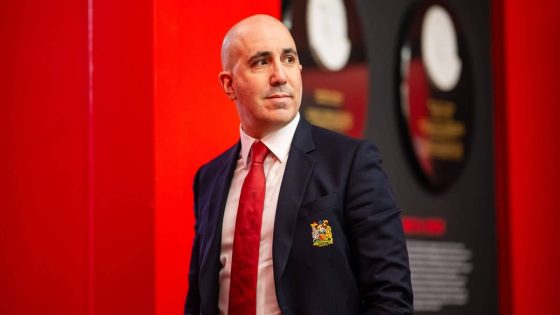Manchester United posted a net loss of £113.2million during the 2023-24 season despite earning record revenues, the Old Trafford club’s full-year accounts have revealed.
In financial results that lay out the scale of part-owner Sir Jim Ratcliffe’s task in balancing the club’s books, United posted their a fifth consecutive full-year loss, due in part to increased investment in the playing squad.
The Old Trafford club were last profitable in 2019 and, under the new part-ownership led by Ratcliffe, have embarked on a series of cost-cutting measures to put the club on a more sustainable financial footing.
United incurred a total of £47.8m in exceptional costs related to the strategic review process which led to Ratcliffe’s minority stake. The club has since embarked on a restructuring process, cutting 250 jobs.
As well as the net loss, United’s pre-tax loss stood at £130.7m. A club’s pre-tax profit or loss is the starting point for the Premier League’s profitability and sustainability rules (PSR).
Under PSR, clubs can incur a loss of no more than £105m over a three-year period. United’s total pre-tax loss over last season’s three-year PSR cycle stands at £312.9m.
PSR allows for clubs to add back spending on youth development, women’s football and community work, among other areas, to help them bring under the maximum £105m threshold.
For last season’s cycle, clubs are also able to add back losses related to the Covid-19 pandemic during the 2021-22 season — the first of the three years under review.
United claim they remain committed to and compliant with the Premier League and UEFA’s spending rules.
United’s £113.2m net loss was despite posting record full-year revenues of £661.8m, driven by increases in broadcasting and matchday income.
Omar Berrada, United’s chief executive, said: “As I embark on my new role as chief executive officer of this historic club, we are all extremely focused on working collectively to create a bright future with football success at the heart of it.
“We are working towards greater financial sustainability and making changes to our operations to make them more efficient, to ensure we are directing our resources to enhancing on-pitch performance.
“Today, we announce new guidance for fiscal 2025 which reflects a partial year impact of the transformative cost-savings and organizational changes that we have been busy implementing over the summer.”
(Ash Donelon/Manchester United via Getty Images)





